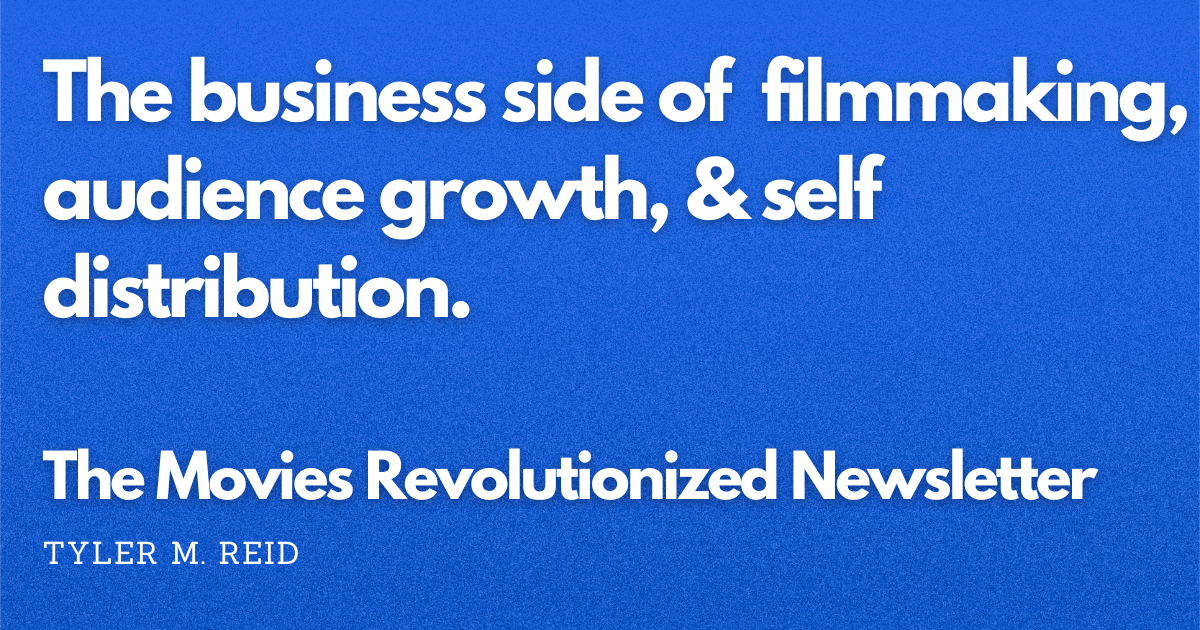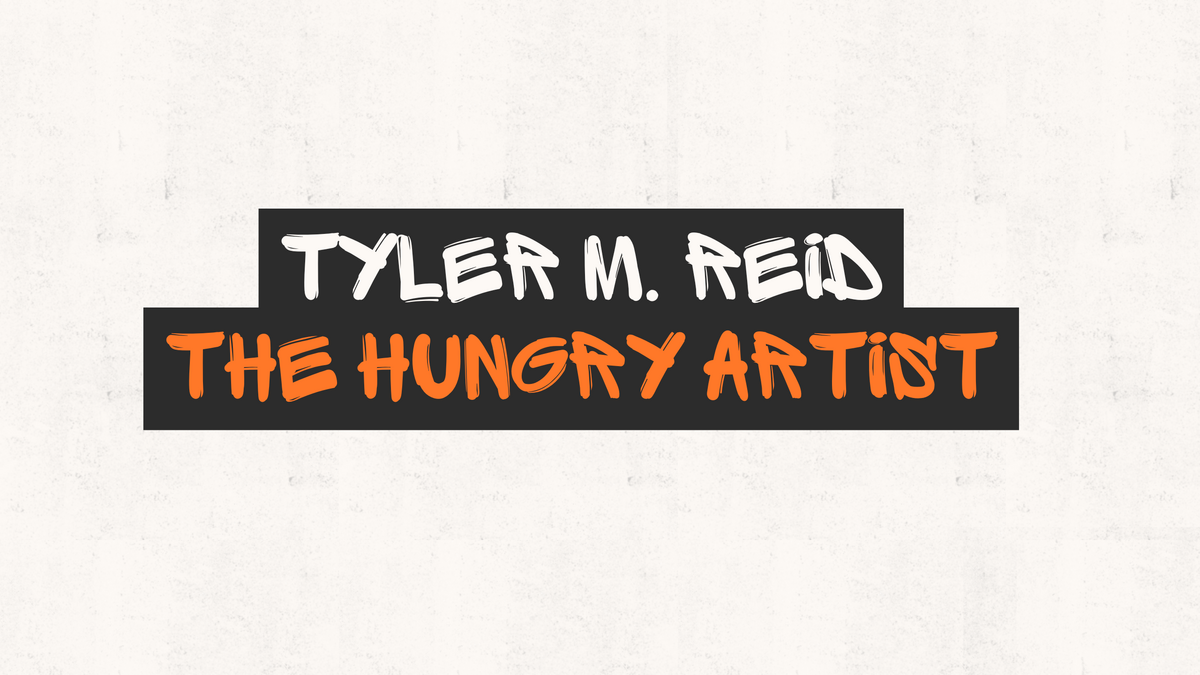The Movie Revolution is brought to you by:
Digital cinema packages (DCPs) made by filmmakers, for filmmakers, starting at $5/minute of runtime.
Don’t overlook local sponsors.
Seriously. They can help fund your film or just make your life a little easier by covering parts of your budget through in-kind support.
What are local sponsors?
Basically, any business or organization in your area that could get behind your film.
It could be a café, car wash, clothing shop, or even a local franchise of a bigger brand like Subway or 7-Eleven.
And don’t forget community groups. Churches, nonprofits, sports clubs, or cultural centers can all be great fits.
If your film has a theme that connects with them, that’s your in.
Got an athlete in your story? Try a local gym or sports shop.
Making a family drama? Maybe a family restaurant or daycare center makes sense.
Why local sponsors matter
Local sponsorships are one of the most underrated ways to help get your film made. This is one of those areas I find the most interesting in the filmmaking lab.
We already think local when hiring crew, finding locations, or getting permits. But not when it comes to money. And that’s a mistake.
Because the truth is, local business owners are often more open to supporting something that’s happening right in their backyard.
There are two big benefits:
Soft money (in-kind support)
Local trust and relationships
Let’s talk about those.
1. Soft money: real value without cash
Soft money is just trade value. They give you products or services instead of money.
It’s easier for them to say yes to because it doesn’t hit their cash flow the same way.
A few examples:
Free crew lunches from a local restaurant
Gas cards for crew vehicles
Wardrobe from a thrift shop
Discounted hotel rooms or Airbnbs
Free hair or makeup from a salon
Printing help from a local print shop
Loaner cars from a dealership
Baked goods for the set from a café or bakery
All those things add up.
You’re not begging for help. You’re creating a partnership that gives them visibility and connects them with your project.
2. Local trust and relationships
A local business owner is way more likely to say yes when they can actually meet you.
You’re a real person, not a random email.
They get to be part of something creative happening in their town, and in return, they get exposure and community love.
It’s not just about money. It’s about being part of something that feels exciting and out of the ordinary.
How to find local sponsors
Start simple.
Take a walk or a drive around your area. Look at all the places you pass: cafés, gyms, car dealers, clothing stores, small markets, hair salons, restaurants.
Each one is a potential sponsor.
Now pick 10. Just 10.
Why 10?
Because most people waste weeks building a giant spreadsheet of 200 businesses and never pitch a single one.
Focus on 10, actually reach out, then move to the next batch of 10.
When you visit a business, your only goal is to find the right person to talk to. Usually, that’s the owner or the manager.
If they’re not around, say something like, “Hey, I’m producing a local film and wanted to reach out about a possible collaboration. Would the owner have a few minutes later this week for a quick chat?”
Whenever possible, pitch in person.
If that’s not an option, go for a short phone call or email. Keep it friendly and short. You’re not selling, you’re inviting.
Pitching your sponsor
Before you pitch, know what you need.
Are you looking for hard money (cash), soft money (in-kind), or a mix of both?
Also know how much you’re asking for.
Let’s say your film has a $100,000 budget. You plan to raise $15,000 through local sponsors.
That could be 5 to 15 sponsors giving anywhere from $1,000 to $3,000 each, or a mix of cash and services.
What do they get in return?
You can tailor it, but here are a few examples:
Logo at the start of the film
“In association with” credit (like In association with Ray’s Car Wash)
Thank-you credit at the end and on IMDb
Invite to local screenings or premieres
Product placement (if it makes sense)
Shoutouts on social media
Behind-the-scenes photos or set visits
A $1,000 sponsor doesn’t need the same perks as a $10,000 one.
A good system is to create three levels of sponsorship:
A smaller entry-level option
A medium one (which most people will pick)
A higher option for bigger players
That way you’re not reinventing your offer every time you talk to someone new.
How soft money actually works
Soft money is usually the easiest to get, but it takes planning.
Timing matters.
If you want a restaurant to provide crew lunches, don’t ask them the week before shooting.
Reach out a month or two early. It shows you’re organized and gives them time to plan.
Here’s the impact:
Let’s say you budgeted $5,000 for catering, and a restaurant offers $500 in free meals. That’s $500 you don’t have to raise elsewhere. Do that a few times and suddenly your budget goes a lot further.
Some sponsors might even offer both soft and hard money.
A gas station might give $1,000 in cash and $500 in gas cards.
Always think from their side.
What makes sense for them?
What could they easily provide?
What’s the simplest way for them to say yes?
Categorize your list into Soft, Hard, or Both, and adjust your pitch accordingly.
Negotiating the deal
Sometimes a sponsor will counter your offer or ask for more. That’s totally normal.
The main rule: stay consistent.
If a $2,000 sponsor asks for all the same perks as a $10,000 one and you agree, you’ll have to do that for everyone. It gets messy fast.
Same thing with in-kind deals.
If a restaurant can’t donate everything, maybe they give a big discount instead, and you still give them some exposure.
Be flexible, but fair.
You’re building long-term relationships here. The last thing you want is for one sponsor to find out someone else got a better deal for less money. That can break trust quickly.
Word spreads fast in local business communities. Protect your reputation by staying organized and keeping deals transparent.
Building long-term relationships
Once someone comes on board, don’t disappear.
Keep them in the loop during production.
Invite them to the premiere.
Tag them on social media when you share updates.
You’re not just trying to close a one-time deal, you’re building a relationship.
A good sponsor might help again on your next film or even introduce you to other business owners who’d love to get involved.
When people feel appreciated, they talk. That’s free word-of-mouth for you and your project.
That’s it. It’s just going out there and doing.
PS: If you want to go deeper, the Filmmaker Lab is the easiest way to learn how to fund your film and avoid the traps that stall most indie projects. Details here
PPS: I also keep a few spots open each month for 30-minute Clarity Sessions. They’re focused on helping you get unstuck, make sharper decisions, and leave with a tailored blueprint. If you’re interested, reply to this email.
PPPS: Do you run a company, brand, or film festival? Want to get in front of nearly 3,000 indie filmmakers each week? Sponsorships for this newsletter are available, details here: SPONSORSHIP

